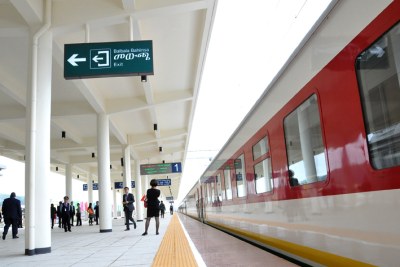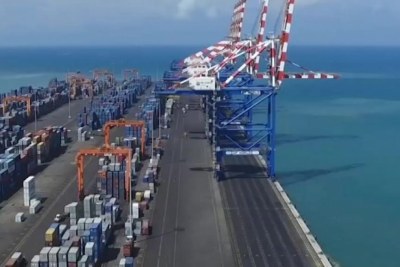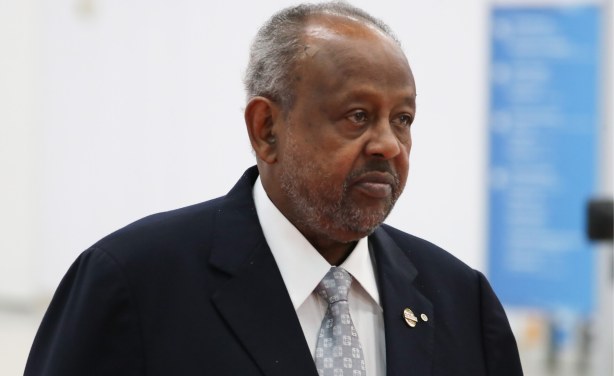-
East Africa: Djibouti Looks to Ethiopia to Gauge Its Economic Future
ISS, 3 May 2021
President Guelleh’s controversial fifth term is more likely to be tested by regional than domestic challenges. Read more »
-
Djibouti: Ethiopia, Djibouti Explore Ways to Further Strengthen Bilateral, Regional Cooperation - Mof
ENA, 8 March 2021
Ethiopia and Djibouti have expressed keenness to explore ways to further strengthen bilateral and regional cooperation, according to Ministry of Finance. Read more »
-
Ethiopia: Semera Industrial Park Said Vital in Ethiopia's Foreign Trade
Ethiopian Herald, 27 March 2021
ADDIS ABABA- The proximity of Semera Industrial Park to Ethiopia's main sea outlets, ports of Tadjourah and Djibouti would create conducive investment climate in the area and to… Read more »
-
Ethiopia: Ethiopia, Djibouti Economic Ties Model for Economic Integration in Africa - President Sahlework
ENA, 30 November 2020
President Sahle-Work Zewde said the remarkable economic ties between Ethiopia and Djibouti is an inspirational model for economic integration in the continent. Read more »
-
Ethiopia: Committee Arises to Facilitate Ethio-Djibouti Trade
Addis Fortune, 19 December 2020
A new committee composed of members from the Ethiopian and Djiboutian transport authorities has been formed to facilitate freight and shipping logistics between the two countries.… Read more »
Djibouti Looks to Ethiopia to Gauge Its Economic Future
Djibouti's President Ismaïl Omar Guelleh, who has been in power for 22 years, won a fifth term in office by a landslide 98% of votes. The country's political opposition criticised the April 9 election process for lacking transparency and fairness, writes Selam Tadesse Demissie for the Institute for Security Studies. However, it won't be plain sailing for Guelleh. His leadership may face economic constraints due to recent regional shifts, particularly related to its key financial partner - Ethiopia. These developments could worsen internal socio-economic grievances.
Djibouti's economy and 85% of its gross domestic product rely on the service sector and revolves around the country's strategic location as a Red Sea transit point on the world's busiest shipping lanes connecting Europe, the Middle East and Asia. However, this could all be disrupted by changes in the economy of its biggest customer - Ethiopia. Djibouti has provided the principal maritime harbour for imports and exports to and from landlocked Ethiopia since 1999. Any disruption in Ethiopia's economy will hurt Djibouti. At the same time, Djibouti's stability is critical to Ethiopia's economic well-being, indicating the interdependence of the two Horn of Africa countries, both economically and regarding security.
InFocus
-
Launched in January of 2018, the service between Addis Ababa and Djibouti City has faced an uphill battle to reach profitability, hampered by unsustainable electric power and water ... Read more »
-
Officials of the two countries say infrastructures developed by the two countries to enhance cooperation such as electrified railway line, power and telecom interconnections that ... Read more »




